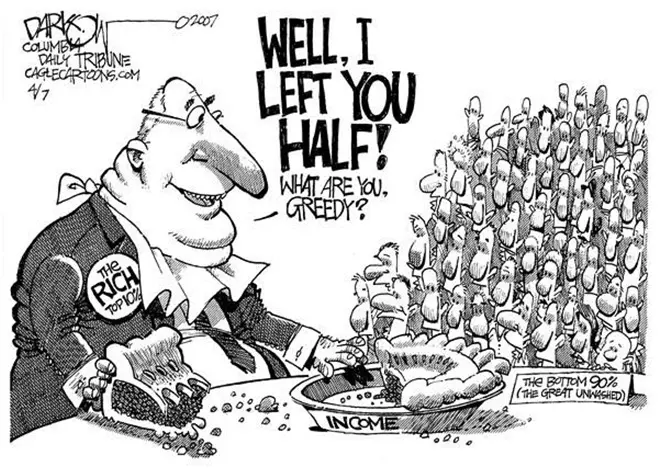We live in a world of abundance and yet millions across the globe are plagued by scarcity. Inequality is perhaps the biggest blight on humanity. While it plagues countries across the globe, inequality has been a major issue in India for decades now.
India is no stranger to the stigmatization of poverty. A country known for its diverse cultural identity is also a country that grapples with numerous social issues on a daily basis, issues that have perpetuated inequality since the onset of independence.
Perhaps the best way to resolve this issue is to trace back its origins.
Inequality isn’t a consequence of one particular thing. Multiple factors, ranging from historical to economic, can be blamed for persisting inequality in our society.
Whatever the cause, we might finally have the tools necessary to tackle these disparities once and for all.
In this article, we want to briefly touch upon the origin of inequality and understand how innovative philanthropic methods of today could break the cycle of inequality in an effective manner.

Tracing the Origins of Inequality
The origins of inequality would vary from country to country across the world. It is important to understand how disparities take root in our society to understand how we can address them efficiently.
In the context of India, we can think of three factors that have contributed to widespread scarcity. They are as follows:

1. Historical Causes
2. Economic Factors
3. Social Issues
What is Being Done to Break the Cycle of Inequality?
Inequality is a complex issue to resolve. That doesn’t mean it’s impossible. Thanks to the advent of platforms for donations, we might finally have a solution that results in long-lasting change.
Here are just a few things a fundraising platform can do to address inequality:
1. Focus on High-Impact Social Projects
2. Addressing Economic Disparities by awareness
3. Enrollment of the government
Our constitution clearly is meant to destigmatize poverty and inequality. Through fundamental rights under part-3 of the constitution like article 15- right against untouchability as well as article 32- Right to constitutional remedies, which empowers a commoner to move the supreme court directly if any of the rights under part 3 of the constitution are not enforced. Part 4 of the constitution clearly outlines DPSP’s – directive principle of state policies which empower and instruct each state regarding the ideals which need to be kept in mind before formulating state policies.
Although the only way India will prosper is through every individual taking an initiative. That’s where donation platforms come in the picture.
How Donation Platforms are Revolutionizing Charity in India?
Platforms for donations are extremely popular today and have succeeded in triggering a trend of charity in India that could potentially lead to a fair and just society.
Below are just a few reasons why more donors and charitable organizations are gravitating toward such online platforms.
1. Ease of Access
2. Higher Level of Transparency
Donations platforms, like Let It Count, for instance, go out of their way to ensure maximum transparency. They provide their donors with the insight and resources they need to track the impact their contributions have made… sometimes in real time. This level of accountability has made such platforms far more trustworthy than their traditional counterparts.
3. Bringing Awareness to Grassroots Initiatives
4. Promoting Corporate Giving
Conclusion
Inequality in India is a pervasive issue that stems from historical, societal, and economic factors. Whatever the cause, relying on innovative platforms for donations could be the answer to finally addressing the issue for good. Such platforms have already revolutionized how charity in India works.
They do a good enough job of supporting high-impact social projects, fighting stigmatization, and bridging the gap between the privileged and underprivileged sections of our society.
If you too wish for a more equitable society, then we suggest you hop onto the most trusted fundraising platform in India – Let it Count to support a cause that resonates with you the most.

